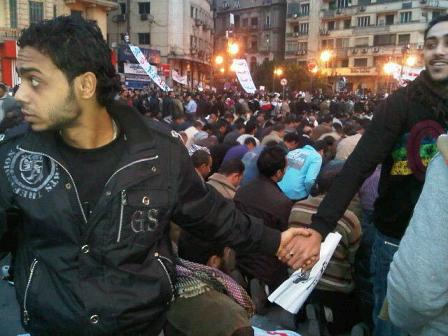I’ve stayed away from news posts, although I am still considering some news-round-up posts if I can find the time, and stuck mainly to content rich posts. This post will be no different, although the death of Osama bin Laden is news, there’s a lot going on in the Middle East, and I want to explore that.
I want to start out by saying I was not one of the ones out in the street cheering when Osama was killed. I just have something against celebrating the death of another person. I suppose it has to do with my belief that the world isn’t so black and white as to lump people into extremes. But, if you ask anyone who lost someone during the attacks or in the subsequent war that followed, they weren’t celebrating either. This was a time for reflection.
A lot of people like to cite the Muslim religion as the driving force behind Al Qaeda. That it was a clash of culture that led Osama on his path: “They hate us for our freedom”. While there was religious influence in the group, it was not the driving force. The Middle East is a region in which religion is all pervasive, with many operating theocrats. So, the real goal of Al Qaeda is political.
There is a huge disparity of wealth in many Arab countries; a small ruling elite controlling most of the wealth and resources, leaving the rest in poverty. It was easy for Al Qaeda to recruit terrorists when there were so many that are disenfranchised, poverty stricken. Many believed they had no future. It was easy for Al Qaeda to point their finger at ruling elite and the west, who had given their blessing to many of these rulers, and rally support against them.
But, Al Qaeda’s motives were never the problem, it was their modus operandi. Drawing support against a dictator is a noble pursuit, and many in the international community would support it. But when you attack civilian and peace time military, that is inexcusable and will label you as a murderer. And you will have to face the consequences, as Osama bin Laden did.
But, Osama bin Laden’s death was largely ceremonial. Al Qaeda’s support in the Middle East had waned. And it was not just the military operation in the Middle East that had minimized their influence.
 In late 2010, a series of nonviolent protest swept across the Middle East. Known as Arab Spring, disenfranchised and impoverished citizens challenged the established dictators. In a few months, several countries had ousted their dictator and undergone revolution. People had found a way for change that didn’t require terrorism. Al Qaeda was left to watch as they became irrelevant.
In late 2010, a series of nonviolent protest swept across the Middle East. Known as Arab Spring, disenfranchised and impoverished citizens challenged the established dictators. In a few months, several countries had ousted their dictator and undergone revolution. People had found a way for change that didn’t require terrorism. Al Qaeda was left to watch as they became irrelevant.
No comments:
Post a Comment